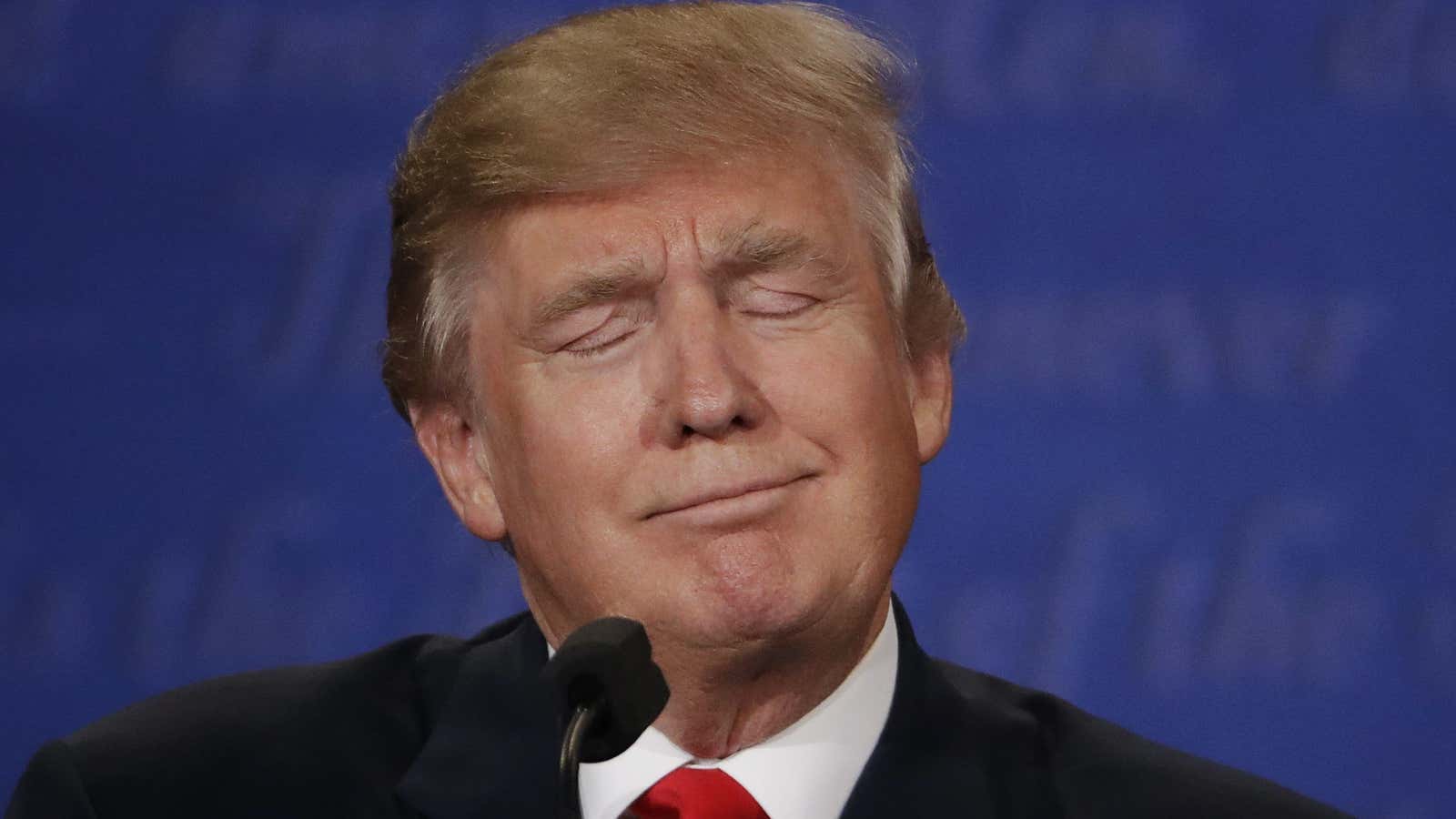Nevermind the Access Hollywood tape about groping women against their consent. Or the growing list of female accusers alleging an array of sexual indiscretions by Donald Trump. Or the emotional backlash triggered by Trump’s comments in the third presidential debate about “bad hombres” or that “nasty woman.”
This country is days away from electing Trump to its highest political office.
That’s the contention of Allan J. Lichtman, a history professor at American University and author of Predicting the Next President: The Keys to the White House. Lichtman’s well-known prediction system is based on 13 true/false “key” statements, which has been accurate in all eight US presidential races since 1984. He told the Washington Post in September that the “keys” were clear enough to call the election for Trump. That was before the Access Hollywood tape, the WikiLeaks release of Clinton’s campaign emails, Trump’s panned third debate performance, and his claim that he wouldn’t accept the election outcome if he loses.
When the Post revisited Lichtman’s initial forecast on Oct. 28, he said he’s standing by his prediction of a Trump win. “By the narrowest of possible margins, the keys still point to a Trump victory,” Lichtman said in an interview.
Lichtman’s system, based on his study of the presidential election cycles between 1860 and 1980, doesn’t rely on polling data, demographic breakdowns, or other intensive number-crunching. If six or more of the “key” statements outlined in his Predicting the Next President book are true, the system favors the party in power. Six or more false statements indicate that the incumbent party will lose the White House. The keys, as articulated by the Post:
- Party mandate: After the midterm elections, the incumbent party holds more seats in the US House of Representatives than after the previous midterm elections.
- Contest: There is no serious contest for the incumbent party nomination.
- Incumbency: The incumbent party candidate is the sitting president.
- Third party: There is no significant third party or independent campaign.
- Short-term economy: The economy is not in recession during the election campaign.
- Long-term economy: Real per-capita economic growth during the term equals or exceeds mean growth during the previous two terms.
- Policy change: The incumbent administration effects major changes in national policy.
- Social unrest: There is no sustained social unrest during the term.
- Scandal: The incumbent administration is untainted by major scandal.
- Foreign/military failure: The incumbent administration suffers no major failure in foreign or military affairs.
- Foreign/military success: The incumbent administration achieves a major success in foreign or military affairs.
- Incumbent charisma: The incumbent party candidate is charismatic or a national hero.
- Challenger charisma: The challenging party candidate is not charismatic or a national hero.
Lichtman said that six of his indicators spell bad news for the Democratic party; most recently because of the third party “key.” Libertarian candidate Gary Johnson garnering 5% or more of the vote is “a big sign of discontent with the party holding the White House,” Johnson said. Meanwhile, Trump’s comments about sexual assault and accusations by other women of wrongful conduct “didn’t change a key,” he added.
But a key could still flip, Lichtman noted, and that would throw the odds back in the Democrats’ favor. Gary Johnson’s support, for example, could drop below 5% of the popular vote. Alternately, Trump’s unconventional antics might actually upend the prediction system altogether. A candidate as disruptive to the status quo as Trump is anyone’s guess, he concluded: ”There can come a time when change is so cataclysmic that it changes the fundamentals of how we do our politics.”
